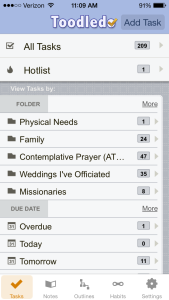 Since it’s a topic that affects our youth ministry, I’ve decided to put my thoughts on Teenage Dating in writing. I don’t expect most people to agree with my views, but I do feel it might be useful for me to present them in case they might be beneficial to anyone.
Since it’s a topic that affects our youth ministry, I’ve decided to put my thoughts on Teenage Dating in writing. I don’t expect most people to agree with my views, but I do feel it might be useful for me to present them in case they might be beneficial to anyone.
I have been observing the teenage dating culture for the past 29 years that I’ve been in youth ministry and this has given me a unique vantage point for formulating my views.
I’ll start by saying right up front that I’m not “anti-dating” and I don’t judge anyone who chooses to date. Dating couples have my blessing and I really hope things work out well for them. In fact, I have known several dating couples in youth group over the years whose relationship I greatly respect. And I’ve even had the privilege of officiating at a few of their weddings!
But in my observation, for every one dating success story there are dozens that can only be described as “epic fail”. To me, teenage dating puts a couple on a precarious path along the edge of a cliff! Almost all of them fall off the cliff at some point and then there’s a huge relational mess to clean up at the bottom. The longer they’ve ascended that path before falling, the greater the damage. Very few make it to the top of the hill.
I feel like far too much of youth ministry is spent cleaning up the messes left from dating (the drama, the depression, the gossip, the revenge, people choosing sides, “I’m not coming if he’s here,” etc.) So if you ever sense my hesitation at the news of another dating couple, that’s why. I’ve been conditioned by experience to predict that most will end in grief — and that grief will affect us all.
Criticism alone isn’t useful, so I want to present a positive alternative to dating at the end of this post. But before I do that, let me describe more fully what concerns me about these typical dating relationships.
MY OBSERVATIONS ABOUT TRADITIONAL DATING.
■ Getting a bf or gf is often driven by feelings, the need for self-acceptance, or social approval.
■ They experience pressure from friends to have a bf or gf in order to fit in.
■ Many students feel they “need” a bf or gf in order to function and their whole sense of well-being revolves around this.
■ They sometimes even experience pressure from parents to have a good looking bf or gf (I wonder if having “datable” kids makes parents feel more successful?)
■ The relationship usually begins with trying to impress the other person and trying to win him or her over, but the real person remains hidden behind a mask.
■ The relationship is formalized by asking the other to “go out” — which is an undefined, temporary pseudo-commitment or contract of sorts. In reality the promise made is basically “I’ll be somewhat loyal to you for now.”
■ This pseudo-commitment necessitates “Defining the Relationship” continually.
■ They rely on words like “I love you” and “in a relationship” Facebook statuses and use pet names, flirting, teasing, good looks, and immodesty. These are shallow ways to try to keep the relationship secure.
■ Life is much more stressful, complicated, and dramatic with so much riding on the status of the relationship.
■ The more confident partner often discovers he or she has power and control over the more insecure one. Sometimes this turns into manipulation, with the more vulnerable one pressured to please the other so as not to lose the relationship.
■ The couple often gets preoccupied with the relationship which makes other things suffer (like grades or church). Texting continuously keeps them hooked on one another 24/7.
■ The pursuit of God often takes a backseat to the pursuit of each other.
■ They tend to become a clique of two, isolating themselves from others.
■ Their isolation presents more opportunities for physical temptation and compromise.
■ They pursue intimacy (emotionally physically, and spiritually) without awareness that one type of intimacy often leads to the others.
■ Jealousy often occurs in others who wish to “lay claim” to the bf or gf.
■ It becomes awkward to speak with or enjoy friendships with those of the opposite sex.
■ Old friends frequently become neglected and hurt, having been replaced by the bf or gf.
■ The couple often withdraws from family to spend excessive time together.
■ They often feel a sense of entitlement over the other person’s time, attention, and body.
■ It easily focuses on “getting” rather than “giving”. This is a consumer mindset so common in our culture.
■ Dating costs a lot of time, money, and emotional investment, making it harder to get out if it’s become unhealthy.
■ When one partner habitually pays for the other’s expenses, it creates a sense of “IOU” which can lead to manipulation.
■ Dating couples often become preoccupied with thoughts of their future life together and miss enjoying the present.
■ Many dating partners continuously check up on what the other person is doing — which indicates insecurity and control. This smothers the other person and robs them of freedom.
■ Breaking up is hard to do. Many of them experience great heartbreak and sometimes even depression when they break up. Both suffer, but the one who cared the most ends up the most wounded.
■ They often end up with much regret over having invested so much time, emotion, and money in what turned out to be only a temporary relationship.
■ It gets very awkward after a breakup. They don’t know how to relate to their Ex or their Ex’s friends.
■ Friends often take sides after a breakup, causing divisions and wounds which can last for years and destroy unity.
Whew!
Can dating happen without these red flags or pitfalls? Certainly. I’ve seen it firsthand. But can anyone deny that these concerns I’ve listed are very very common? I’m guesing, “No”. Overall, the world of teenage dating is a mess! Our youth group has been adversely affected at various times over the years by the fallout of dating-gone-bad as described above. People have even quit coming to church over such things. Do you see why traditional dating makes me a little squeemish?
SO WHAT’S MY ALTERNATIVE? FRIENDATIONSHIP!
Instead of blindly conforming to the world’s custom of dating, what if guys and girls could experience something entirely different — with none of the consequences and almost all of the benefits! I’ve seen a few counter-cultural teenagers over the years who have modeled what I’m about to describe and they’ve earned my respect. I don’t know of a name for this kind of relating, so I’m going to use one my friend Erin proposed. Let’s call it “Friendationship.”
Friendationship — to me — is when a guy and a girl enjoy a healthy friendship without any of the negatives listed above. Like any normal friendship, they spend time getting to know each other. The friendship just happens slowly over time with no pretense. As their natural friendship grows, they find that they enjoy being together and so they naturally spend more time together. Their time together is often spent with others and in groups and with families in a variety of setting (missions trips, etc). They may go on occasional dates but these are not the substance of their relational time. They may freely go on dates with others as well — it’s not “cheating” because such dates do not infer commitment. In fact, they likely have several friendationships going on simultaneously as they connect socially people of the opposite sex. This helps them learn what qualities they like or don’t like in members of the opposite sex. The friendationship may grow closer or futher apart over time, but this happens naturally and mutually and without a lot of stress or emotional turmoil. Their emotional health never hinges on “where they stand.” It’s impossible for them to “break up” because no “contract” was ever made regarding their status. They don’t need or rely on “I love you’s,” labels (BFF), exchanging of tokens, etc. They don’t need to “define the relationship” much at all except to learn ways to be a better friend to the other. These teens find no shame in their Facebook status of “single” because they fully enjoy living freely rather than enter the world of “it’s complicated”. They purposefully avoid dwelling on thoughts of romantic relationships or marriage, recognizing that those decisions are many years away and can wait. They recognize that they must restrain themselves from getting too close, keeping intimacy at a healthy level. They guard their hearts and work hard to be accountable and to keep their feelings in check, knowing that now is not the time to explore those areas. Their lives revolve around God, not each other. Their pursuit of God exceeds their pursuit of romance. They keep their natural sex drives under control by choosing to avoid pornography, steamy romance novels and sensually-charged entertainment. They patiently trust God to provide for their needs and their future — in His time.
THE OUTCOME OF FRIENDATIONSHIP.
Over time the guy and girl may end up being somewhat distant friends, great friends, or maybe even best friends — all are good options! Friendships just happen and they are to be enjoyed when they do.
After the couple leaves their teen years (for most, not all) and when they know themselves better and have their life direction and financial means figured out, then they can begin focusing on choosing a marriage partner. This is the time to leave the Friendationship Stage and enter what many refer to as the “courtship” stage of life, or “God-centered dating”. But unlike other courtship models, this stage implies a formal pursuit of marriage with the person who has already become your best friend — the one you’ve figured out you can’t live without! It’s true that love can be blind, so you’ll also have an added safeguard — the confirmation of others. Your friendationship has been on display for everyone around you to observe so if you’re obviously well-matched the decision for the two of you to pursue marriage will become a social mandate! You’ll hear comments like “When are the two of you going to start pursuing marriage?”
CONCLUSION.
I think seven of the most precarious words in the teenage world are, “Will you go out with me…yes!” Those few words instantly set them upon that precarious path up the hill along the cliff. At that point there are only two possible outcomes of such an arrangement: a painful break-up (likely) or marriage (unlikely). I think teenagers would be wise to avoid placing themselves in such a vulnerable position and focus instead on developing healthy Friendationships.
That’s my conclusion for you to consider. I’d love to hear your feedback and comments!
ONE FINAL WORD OF CLARIFICATION.
Regardless of whether you are doing traditional dating or seeking a Friendationship, I think it’s important to be sure to communicate your relationship intentions so the person you’re relating to doesn’t have different expectations. If you’re simply pursuing a healthy friendationship make that very clear so the other person doesn’t read romantic intentions into your friendly behavior. If you choose a dating relationship, talk about what that does or doesn’t mean.
Girls, who often crave security, are prone to having their hearts wounded by false expectations of commitment, so guys take the lead and be clear about what kind of relationship you are initiating.








